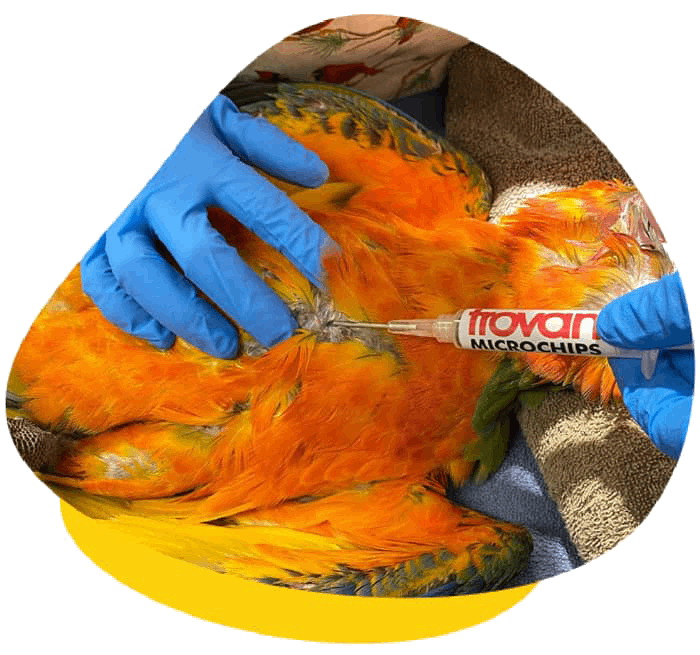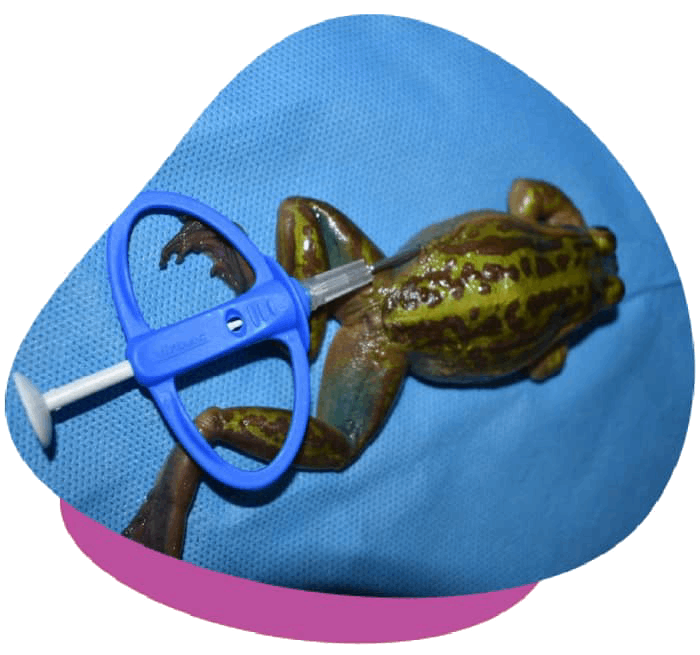
What Is a Microchip, and How Does It Work?
The microchip itself is about the size of a rice grain and contains a unique numeric code registered against your details and retrieved if needed. As part of the microchipping procedure, we register the unique code with a national registry. When scanned, the microchip number correlates to your pet’s details and your contact information.
Can All Exotic Pets Be Microchipped?
Yes, all exotic pets can be microchipped. We routinely microchip snakes, lizards, birds, rabbits, ferrets, mice and rats even frogs and turtles.
